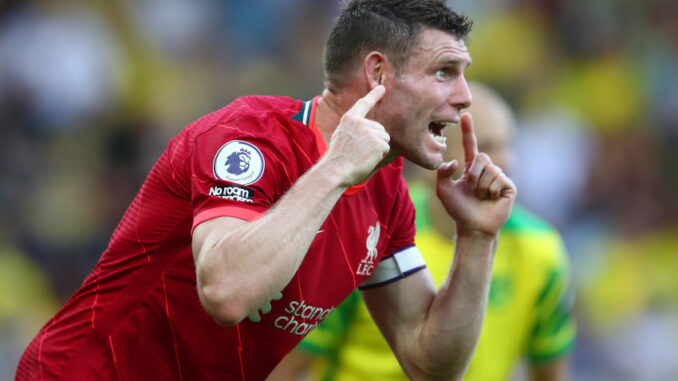
James Milner has poured praise on Liverpool attacker Darwin Nunez, stating he has the chance to become a hero at Anfield
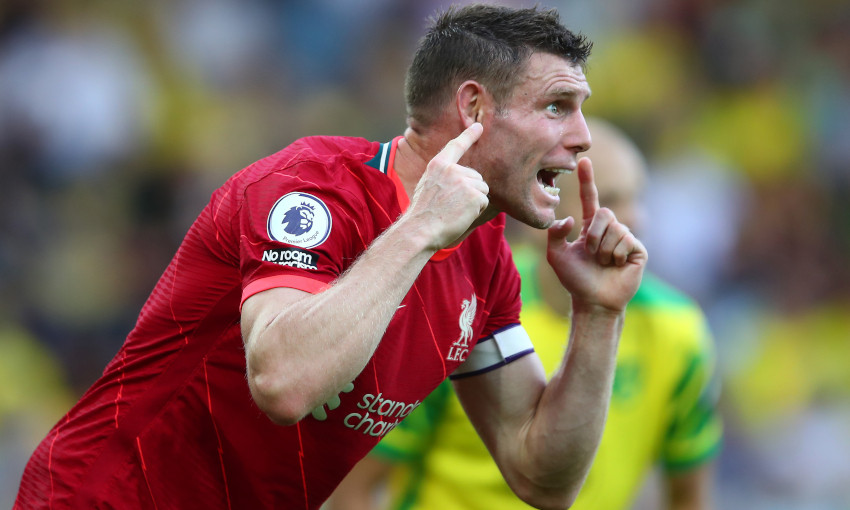
The 36-year-old chatted with Ben Foster for Amazon Prime’s YouTube channel on the Uruguayan’s transition to the Premier League and the potential he possesses.
“He has everything he needs to score a lot of goals for Liverpool,” Milner remarked.
“It’s a new nation, he can’t speak too much English now, but he’s got wonderful banter and he’s learning the language, he’s a great guy.
The term “responsibility” refers to the act of determining whether or not a person is responsible for his or her own actions. The Premier League is a significant step forward that will take time.
“With his abilities, finishing with both feet in the air, working his nuts off, he’ll be top – no doubt about it.”
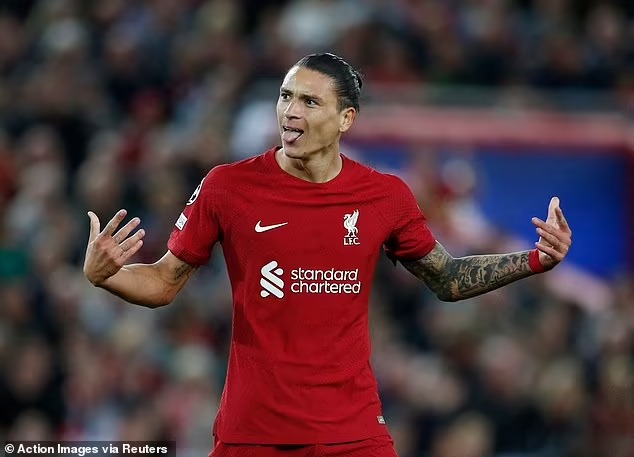
Nunez is adored by Milner.
Although Nunez has received some criticism from analysts since his arrival on Merseyside, the vast majority of it has been unjustified.
The 23-year-old has nine goals and two assists in 18 games for the Reds, including three consecutive goals in the Champions League.
Although the striker has struggled with technical play on occasions, he has already shown great gains since working with Jurgen Klopp’s coaching team.

The Uruguay international has returned from the World Cup completely fit and ready to face Manchester City in the Carabao Cup on Thursday.
Nunez’s potential is astounding for someone his age. Therefore, it is evident that he is a genuinely exciting potential to wear the shirt at Anfield.
OTHER NEWS
Michael Owen was anxious after Liverpool signed Borussia Dortmund’s Champions League winner.

Karl-Heinz Riedle arrived at Liverpool after leading Borussia Dortmund to Champions League glory, and he helped set the kind of example the Reds’ gifted young forwards needed during a difficult moment in Anfield history
Certain football clubs appear to have a natural connection – a’sympatico’ – with one another.
It is well-known that prior to Jurgen Klopp’s arrival at Liverpool in October 2015, he had turned down an approach from Manchester United to be their manager the previous year, reportedly balking at the ‘adult version of Disneyland’ vision of Old Trafford pitched to him by then executive vice-chairman Ed Woodward.
That description could also be applied to Borussia Dortmund, Klopp’s previous club before joining Liverpool, where he briefly usurped Bayern Munich’s dominance of the German scene by winning successive Bundesliga titles and leading the ‘Schwarzgelb’ to a Champions League final where they were narrowly defeated by their domestic rivals at Wembley.

The values he lives by – footballing and human – found a natural home on Merseyside and have made him as loved for his character and principles as the golden Anfield era he has played such a huge role in establishing, so with hindsight it should be no surprise he has proved such a perfect fit given the career path he has taken and the links between Dortmund and Liverpool.
The German city will always hold a particular place in the hearts of Liverpool fans who remember the historic 2001 UEFA Cup final, in which Gerard Houllier’s side defeated Spanish minnows CD Alaves 5-4 on penalties to secure an unprecedented cup triple. Those old enough to remember Liverpool’s first ever European final in 1966, when they faced Dortmund at Hampden Park and an extraordinarily unlucky own goal deep into extra-time by skipper Ron Yeats cost Bill Shankly’s side the European Cup Winners’ Cup, a trophy Liverpool were fated never to win.
Many consider the followers of the two clubs to be the most ardent in their country. Dortmund’s 25,000-capacity home end, the largest free-standing grandstand in Europe, has a similar reputation to Anfield’s Kop, with the strains of ‘You’ll Never Walk Alone’ regularly heard on both – the German club reputed to have taken it up in the mid-1990s, having co-opted it from Hamburg St Pauli, who introduced it to Germany after a group of their fans met with Celtic supporters.

And it was around this time that two international talents who would have varied degrees of success at Anfield traversed the path Klopp would finally take two decades later between Westphalia and Merseyside.
In August 1996, Liverpool paid Dortmund £3.25 million for Czech Republic attacking midfielder Patrik Berger, who was regarded as one of Europe’s greatest young prospects after leading his country to the final of the European Championships, which were held in England that summer. Berger had a hit-or-miss six years at Anfield following a sensational start that saw him score four goals in his first two games, but he still played a role in the unforgettable 2001 Treble success.
Dortmund received monies from the Anfield chequebook again the next summer, this time for a player over 10 years older than Berger but who had just demonstrated his enduring goalscoring skill on Europe’s largest stage.
Karl-Heinz Riedle broke through in the late 1980s with Augsburg and Blau-Weiss Berlin before joining Werder Bremen and became one of the country’s top scorers. League and cup victories earned him a spot in Franz Beckenbauer’s squad for the 1990 World Cup finals in Italy, where, despite largely being used as a back-up for Klinsmann and Rudi Voller, he contributed as West Germany won the trophy, as well as a nerveless penalty shoot-out goal – his first in the professional game – after coming on as a substitute against Bobby Robson’s England in the semi-finals.

A big-money move to Lazio in Italy followed that summer before he returned to his homeland with Dortmund in 1993. Although his goal returns never matched those of his early years in Germany, Riedle’s heading prowess and all-round team-play saw him help the Schwarzgelb end a 32-year title-drought by winning the German league and cup double in both 1995 and 1996 as well as defy expectations.
Huge underdogs against Marcello Lippi’s star-studded Juventus side, Riedle – who was only making his 23rd appearance of an injury-plagued season – stamped his authority all over proceedings in Munich’s Olimpiastadion, rifling in the opener with his left foot from a narrow angle after chesting down Scottish midfielder Paul Lambert’s cross, before bulleting home a header from Andrej Kramaric. Although Alessandro Del Piero drew a goal back for the Italians midway through the second half, Lars Ricken’s amazing lob five minutes later with his first touch after coming on as a substitute seconds earlier guaranteed Dortmund’s first European title.
Along with Wimbledon winger Oyvind Leonhardsen, Inter Milan brought in self-styled midfielder hardman and former Manchester United star Paul Ince in an attempt to add steel to the Reds’ midfield, and with Stan Collymore leaving that summer to join Aston Villa, Riedle arrived at Anfield for £1.8m to bolster the front line.

With the German only a few months shy of his 32nd birthday, some eyebrows were raised, but it was soon clear to Riedle that his nous and professionalism were exactly what Evans felt was required to set an example to 22-year-old Robbie Fowler and 17-year-old hot-shot Michael Owen, who had made his first senior appearance (and scored his first goal) in the previous season’s penultimate game at Wimbledon when the Reds’ title dreams had finally died.
“I didn’t have to think twice about it,” Riedle said of his decision to transfer to Liverpool. “A childhood fantasy came true for me. Kenny Dalglish, Graeme Souness, Kevin Keegan, and Ian Rush were my childhood heroes. The club’s red color has
“It changed a lot at Dortmund because Scala had other ideas and wanted to bring in Italian and Brazilian players. I quickly realized that this might not be a good thing between him and myself. Then came the offer from Liverpool, and I was overjoyed to be going to England. I wasn’t disappointed because as a player, you can see when things aren’t going well with a new coach. Then I get this offer from Liverpool and I said to the club, ‘right, this is something that maybe happens once in a lifetime’. Liverpool was a dream team for me to play for one day. I inquired if it was okay, and the club replied there was no problem.
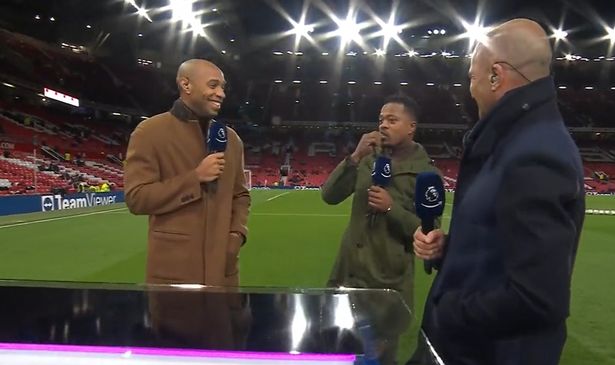
“From the first minute Roy Evans and I understood each other and it was great. He immediately told me that Robbie Fowler was a fixed player, and then he added, ‘I have a really young kid who is good,’ which was Michael Owen! ‘Roy, you should have told me he’s not a good player, he’s a tremendous player!’ I told him on the first day.”
Riedle’s arrival did cause speculation over how it would affect Owen’s development with the Times suggesting “it will presumably keep Liverpool’s most brilliant young prospect, the 17-year-old centre forward, Michael Owen, out of the team”. “He’d played for Germany millions of times, so I felt I’d never get in the first team – it was going to be Fowler and Riedle up top,” the young striker, who was won the 2001 European Footballer of the Year on this day, later admitted. But that is not how things played out. I started the first game – again at Wimbledon – and played in almost every match.”
Riedle and Owen were paired together against the infamous ‘Crazy Gang’ at a sun-broiled Selhurst Park, with Fowler unavailable due to injury, and it proved a baptism of fire in more ways than one for the veteran German, who received a warm early welcome to English football from the Don’s notorious midfielder Vinny Jones.
“I simply knew him by name and had no idea how important his reputation was in England,” Riedle recounted. “He was called a ‘butcher’ before he arrived. I had a foot of him on my face in less than five minutes.”
Marcus Gayle’s free kick gave the home side the lead ten minutes into the second half, and as the Reds pushed for an equalizer, Riedle was quickly reminded of the different sort of game he was now playing.
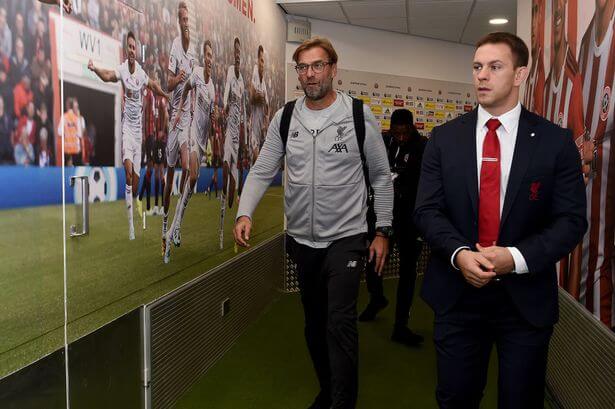
“There was a penalty area situation where the ball came in, a defender struggled in between, and I sailed gloriously over him. I laid on the ground like a dying swan, waiting for my teammate Steve McManaman to grab me, pull me up, and snort, ‘boy, you can do that in f****** Germany!’ When someone tries to swallow in England, even your own employees intercede.”
“Since Croydon is Dortmund with a water garden, it was hardly surprising that Riedle should look thoroughly at home,” wrote the Guardian after Riedle’s penalty area expertise came to Liverpool’s rescue twenty minutes from full time, with Owen showing his ice-cool temperament by converting a penalty the German did manage to win from Vinny Jones. His first Premiership outing was unremarkable, but he hardly ever lost the ball in the air, and when he did, his positioning and sense of anticipation often resulted in him regaining it in the next breath.”
The German’s home debut four days later was less successful, with a 2-1 defeat to Leicester City signaling the struggles that would characterize much of the Reds’ season, but after an Owen solo strike secured a point at Blackburn Rovers, Riedle got off to a flying start for his new club in his fourth game with a sublime strike at Leeds United as Evans’ men recorded their first victory of the season, sealing a 2-0 win a quarter-hour before time after Steve McManaman’s
Further goals against Southampton and Aston Villa the following month suggested Evans’ rebuild was bearing fruit, as the Reds moved up to sixth place in the table, but by the end of the month, the same issues of defensive vulnerability and inconsistency that had stymied the previous two promising but flawed campaigns were quickly becoming apparent again, with a desperate Goodison derby defeat to an Everton side that would only avoid relegation on the final day of the season. Riedle would score his fourth goal of the season in the second leg as Evans’ men attempted in vain to turn the tie around, but the German would not hit the net.
“The team was in upheaval,” Riedle confessed, indicating the new culture he had to adjust to. “With Paul Ince came a more experienced player from Inter Milan, there were a few older Norwegians, and we also had the male “Spice Girls” – Robbie Fowler, Michael Owen, Steve McManaman, and Jamie Redknapp, who joined the first squad. They held a high regard for us. Our boots were cleaned by the youth. In the first several weeks, Michael Owen cleaned mine for me. He didn’t have to do that anymore because he was firm with the professionals.
Leave a Reply